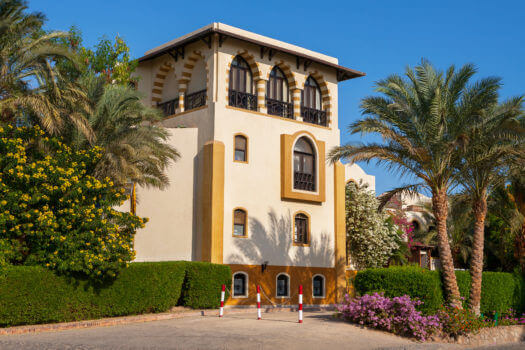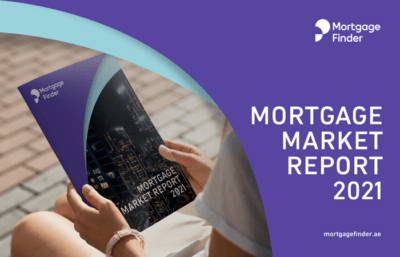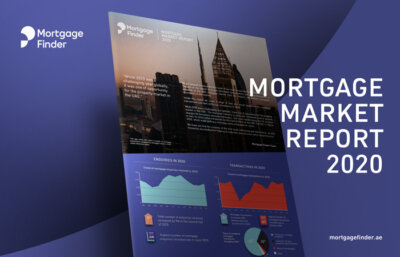

Want a Mortgage in The UAE? Here’s How to Get Preapproved
Buying property in the UAE is exciting, but the process can be smoother and less stressful if you start with mortgage pre approval. Understanding how mortgage pre approval Dubai works, and how to get preapproved for a mortgage, can give you a clear picture of your budget, speed up property purchase, and strengthen your position as a serious buyer.

In this article, we break down everything you need to know about mortgage pre approval Dubai, including benefits, steps, required documents, and expert tips.
Why Mortgage Pre Approval Dubai Matters
Mortgage pre approval Dubai is an initial evaluation by a bank or financial institution to determine how much they are willing to lend you for a property. Getting preapproved for a mortgage gives you several advantages:
- •Clarity on your budget: Knowing your approved loan amount helps you focus on properties within your financial reach.
- •Faster property purchase: Preapproval expedites the mortgage application once you select a property.
- •Stronger negotiating position: Sellers are more likely to take your offer seriously when you have preapproval.
- •Avoid surprises: Preapproval highlights potential issues in your income, credit, or documentation before you start property hunting.
Mortgage pre approval Dubai is especially useful in Dubai’s competitive real estate market, where being a prepared buyer can give you an edge.
| Read more about upfront costs:
|
Who Can Get Preapproved for a Mortgage?
Most banks in Dubai offer preapproval for residents and expatriates.
Key eligibility factors include:
• Minimum age: Usually 21 years old
• Maximum age at loan maturity: Typically 65 years
• Stable income: Verified salary or business income
• Good credit history: Banks will conduct credit checks before preapproval
Expatriates may have slightly stricter requirements, such as higher minimum income or larger down payment.
Steps to Get Preapproved for a Mortgage in Dubai
- Assess Your Financial Situation
Before applying, review your income, existing debts, and monthly expenses. Mortgage pre approval Dubai depends on your ability to repay the loan.
- Prepare Required Documents
Banks usually require:
- •Passport copy
- • UAE residency visa
- •Salary certificate or proof of self-employment income
- •Bank statements (typically last 3–6 months)
- •Details of existing loans or liabilities
- •Passport copy
- Choose Your Lender
Not all banks offer the same mortgage products or preapproval terms. Comparing lenders can help you find competitive interest rates and better terms.
- Submit Preapproval Application
Provide all documentation and complete the bank’s preapproval form. Some banks may allow online applications.
- Bank Assessment
The bank reviews your income, liabilities, and credit history. They calculate your maximum loan amount, monthly installments, and applicable interest rates.
- Receive Preapproval Letter
Once approved, the bank issues a mortgage pre approval Dubai letter specifying your maximum loan, interest rate, and validity period (usually 30–90 days).
- Start Property Search
With preapproval in hand, you can confidently search for properties, knowing your budget and financing are secured.
Benefits of Getting Preapproved for a Mortgage
- • Faster approval: Preapproval shortens the final mortgage approval process.
- • Negotiation advantage: Sellers recognize preapproved buyers as serious and financially prepared.
- • Budget clarity: Avoid looking at properties outside your approved range.
- • Improved financial planning: Know your monthly repayments and plan accordingly.
Common Questions About Mortgage Pre Approval Dubai
Q: How long does preapproval last?
Most preapproval letters are valid for 30–90 days. If you don’t finalize a property within that time, you may need to reapply.
Q: Does preapproval guarantee the mortgage?
No. Final approval depends on property valuation, updated financial status, and documentation. Preapproval is an indication of likely approval, not a guarantee.
Q: Can expatriates get preapproved?
Yes, but requirements such as minimum income or down payment may be higher than for UAE residents.
Q: Can I get preapproved for multiple properties?
Banks generally preapprove based on your total borrowing capacity, so you can explore different properties within your approved budget.
Tips to Increase Your Chances of Preapproval
- •Maintain a good credit history: Avoid late payments on existing loans.
- •Reduce debts: Lower debt-to-income ratio improves preapproval chances.
- •Save for down payment: A higher down payment can help secure a larger loan or better interest rates.
- •Choose the right bank: Some banks offer more flexible terms for preapproval, especially for expats.
Understanding Mortgage Pre Approval vs. Final Approval
Mortgage pre approval Dubai is different from final mortgage approval:
| Step | Preapproval | Final Approval |
| Purpose | Evaluate your financial eligibility | Confirm property valuation and documents |
| Validity | 30–90 days | Until loan disbursement |
| Guarantee | Not guaranteed | Legally binding mortgage agreement |
| Requirements | Personal income, credit history, documents | Property documents, updated financials, insurance |
Mortgage pre approval Dubai is a crucial first step for anyone planning to buy property in the UAE. By getting preapproved for a mortgage, you gain clarity, confidence, and a competitive edge in the market.
Whether you’re a resident or an expatriate, understanding the process, preparing your documents, and working with a trusted mortgage advisor ensures a smooth homebuying journey.
Ready to get preapproved for a mortgage? Contact Mortgage Finder today to explore your options and secure your preapproval in Dubai.





